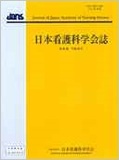Japanese
English
- 販売していません
- Abstract 文献概要
- 参考文献 Reference
要旨
目的:地域で生活する精神障がい者が自分にとって調子のいい状態を獲得するプロセスを明らかにする.
方法:地域活動支援センターに通所する精神障がい者12名に半構成的インタビューを行った.分析は修正版グラウンデッドセオリーアプローチを用いた.
結果:地域で生活する精神障がい者は,「喪失と辛苦」から出発し,『試行錯誤』と『取捨選択』を繰り返す経験を自らの糧として『自分のよりどころ』とし,『自分での手当て』を行い『平坦な暮らし』をすることで自分にとって調子のいい状態を維持していた.このプロセスは,病気をコントロールし生活を主体的に送る力を取り戻す【主導権の再獲得】であった.
結論:本プロセスを促進するために精神疾患に伴う認知機能障害を考慮した支援の必要性が示唆された.また,支援者によるつなぐという支援技術の詳細を明らかにする必要がある.
Purpose: To elucidate the process by which community-dwelling individuals with mental disabilities achieve favorable daily living conditions.
Methods: Semi-structured interviews were conducted with 12 individuals with mental disabilities who visited a community activity support center. Data were analyzed using a modified grounded theory approach.
Results: Subjects indicated that they forged a “my guide” from a state of “loss and troubles” by making use of repetitive experiences of “trial-and-error” and by “selecting only what is necessary”. They maintained favorable daily living conditions by engaging in “self-care” and creating a “stable lifestyle”. This process constituted “re-acquisition of initiative”, in other words the process of managing their disease and regaining the ability to live independently.
Conclusion: Our results suggest that in health care professionals must consider the cognitive impairment associated with mental disorders. Our results also highlight the need for more detailed research into the techniques used by health care professionals who provide support.
Copyright © 2016, Japan Academy of Nursing Science. All rights reserved.


